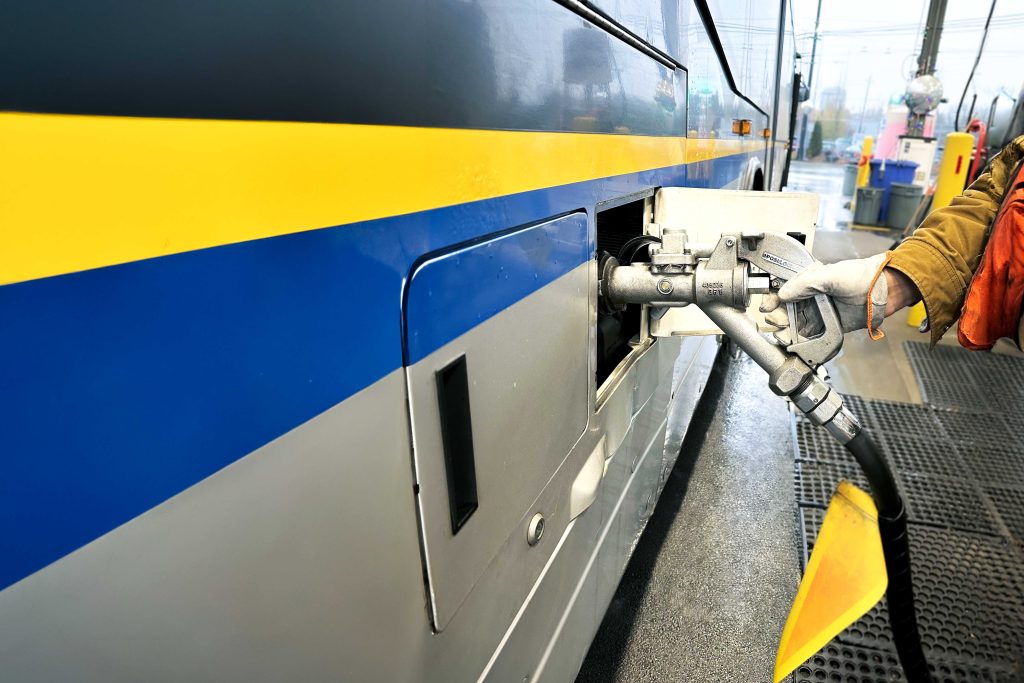TransLink Transitions to Renewable Diesel
1/15/2024

TransLink, New Westminster, BC, is introducing renewable diesel into its bus fleet. The Surrey Transit Centre is the first bus depot to transition and became fully fueled with renewable diesel Jan. 1.
Renewable diesel comes from organic waste, such as used cooking oil or waste animal fats or vegetable oils and offers an 80 percent reduction in greenhouse gas (GHG) emissions compared to fossil fuel diesel.
With this change, TransLink will be reducing total greenhouse gas emissions by 6,550 tons or five percent of its total emissions—the equivalent of removing 1,900 passenger vehicles off the road.
“The time to take climate action is now,” said TransLink CEO Kevin Quinn. “By introducing renewable diesel to our bus fleet, we’re doing our part to move away from fossil fuels. Renewable diesel will deliver rapid GHG reductions while we work to electrify our fleet.”
Implementing renewable diesel will help TransLink achieve specific goals outlined in its Climate Action Strategy, including reducing GHGs 45 percent by 2030 (from 2010 levels). The agency remains committed to moving to a zero-emission fleet by 2040.
Additional transit centers are planned to be converted to renewable diesel in the coming year. The use of renewable diesel as a fuel source for the West Coast Express and SeaBus is also being studied.